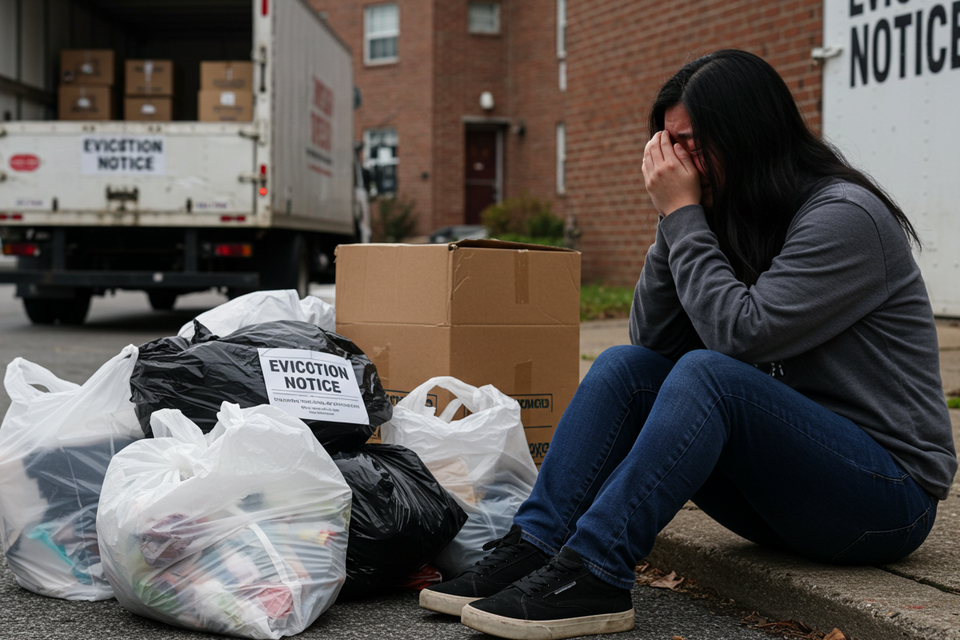
What To Do If You’re Facing an Eviction
What To Do If You’re Facing an Eviction?
Introduction
Receiving an eviction notice can be overwhelming and frightening. Many tenants immediately wonder if their landlord has the right to remove them and what steps they can take to protect themselves. Tenants often search a land lord review site or ask in a rate my land lord forum “Is this legal” This guide explains what eviction means, the process your landlord must follow, and how you can respond.
What Is an Eviction?
An eviction is a legal process where a landlord seeks to remove a tenant from a rental property. It usually begins with a written notice followed by court action if the tenant does not comply. Evictions must go through the legal system. A landlord cannot simply change locks or throw belongings outside.
Common Reasons for Eviction
Landlords may file for eviction for several reasons including
• Nonpayment of rent
• Repeated late payments
• Violations of lease terms such as pets extra occupants or property damage
• Lease expiration without renewal
• Illegal activity on the property
• Nonpayment of rent
• Repeated late payments
• Violations of lease terms such as pets extra occupants or property damage
• Lease expiration without renewal
• Illegal activity on the property
Your Rights as a Tenant
Even if your landlord starts the eviction process you still have rights
• The right to proper written notice which varies by state
• The right to a hearing in housing court
• The right to challenge false claims or unfair practices
• Protection from self help evictions such as changing locks or shutting off utilities
• The right to proper written notice which varies by state
• The right to a hearing in housing court
• The right to challenge false claims or unfair practices
• Protection from self help evictions such as changing locks or shutting off utilities
Steps To Take If You Get an Eviction Notice
If you receive an eviction notice you can protect yourself by
• Reading the notice carefully to understand the reason and timeline
• Contacting your local housing authority or tenant union for advice
• Saving all communication with your landlord
• Preparing evidence such as payment records or photos of ignored repairs
• Attending any scheduled court hearing since ignoring it could result in automatic eviction
Can You Stop or Delay an Eviction
In some cases you may be able to. Options include
• Paying overdue rent within the notice period
• Negotiating with your landlord to resolve issues
• Raising legal defenses in court such as unsafe housing conditions or landlord retaliation
• Applying for emergency rental assistance programs if available
• Reading the notice carefully to understand the reason and timeline
• Contacting your local housing authority or tenant union for advice
• Saving all communication with your landlord
• Preparing evidence such as payment records or photos of ignored repairs
• Attending any scheduled court hearing since ignoring it could result in automatic eviction
Can You Stop or Delay an Eviction
In some cases you may be able to. Options include
• Paying overdue rent within the notice period
• Negotiating with your landlord to resolve issues
• Raising legal defenses in court such as unsafe housing conditions or landlord retaliation
• Applying for emergency rental assistance programs if available
Conclusion
Facing an eviction is stressful but knowing your rights and acting quickly can make a major difference. Stay calm gather your records and seek support from housing resources in your area. After the process is complete consider rating your experience with the landlord on our platform. Your review can help future tenants understand what to expect and it also holds landlords accountable for how they treat renters.
Disclaimer
This article is for educational purposes only. We are not lawyers. Tenant laws vary by state and city. Please contact your local housing authority or a qualified attorney for legal advice.
